I’ve always liked pianist Evgeny Kissin, but sometimes I feel ambivalent about his interpretations. See my reviews of his Carnegie Hall appearances in May 2018 and November 2015 for more on this.
But Kissin’s May 2nd, 2023 Carnegie Hall piano recital was a “must see” for Roving Pianist (RP), because of its program. Many others must have felt the same: Carnegie’s main auditorium was packed to the back of the balcony and there were also audience seated on stage.
Bach: Chromatic Fantasia and Fugue in D minor, BWV 903
I first heard Bach’s sublime Chromatic Fantasia at Lisa Yui‘s inspiring Juilliard evening class Keyboard Literature in Concert Baroque & Classical. I couldn’t wait to hear what Mr. Kissin would make of this delightful work.
Kissin was impeccably tailored and bowed long, with dignity befitting a great man. His Bach was also perfectly presented, punctuated by emphatic head-nodding and underpinned by intense concentration.
The fugue’s simple ascending theme transported us in a DNA-like three-dimensional musical helix, closing with a short cadence. My companion had one word for Kissin’s fugue: “perfect”.
Mozart: Sonata in D Major, K. 311
From the chirpy opening, through the generally lyrical slow movement and into the dancing close, Kissin’s Mozart was light and benign. Sandwiched between Bach and Chopin, it was in place chronologically. However, it felt out of place emotionally.
Chopin: Polonaise in F-sharp Minor, Op. 44
In contrast, Kissin’s F sharp minor Polonaise Op. 44 was dark and stunning. His two-handed keyboard runs were so fierce and flawless that they felt like an oceanic roar. It was a breathtaking display of Kissin at his most magnificent.
Rachmaninoff: Selected Piano Pieces
Rachmaninoff occupied the entire second half of the recital. The scheduled works included Lilacs, a couple of Preludes, and five Études-Tableaux from Opus 39. Kissin’s Études-Tableaux were satisfyingly Russian, played with appropriate force and angst. I would highlight two of them.
I love Étude-Tableau Op. 39 No. 2 in A Minor, but Kissin’s was missing something. Those pedal-like bass notes were just too pale. What was he thinking? Let us hear those low A’s, Evgeny! I have to stay with Denis Matsuev for this one.
Étude-Tableau Op. 39 No. 9 in D major was probably the best of the scheduled Rachmaninov. This driven work had it all, from cinematic sweeps, twinkling ascending thirds, dramatic modulations, cacophonous clatter and stomping boots! We wanted Russian pianism, we got it, we applauded deliriously.
Rachmaninoff: Prelude in C-sharp Minor Op. 3 No. 2
For encores, Kissin went all-Rachmaninoff. We cheered him on in the afterglow of his Études-Tableaux. But in truth the first two encores were small cheese.
Not so the last encore! As Kissin played the opening chords of the emblematic Prelude Op. 3 No. 2 n C-sharp Minor, we drowned him in our delight and clapped like crazy folk. We cheered for 19-yr-old Sergei Rachmaninoff who wrote it. We cheered for Evgeny Kissin in his prime. And we cheered because we knew from this choice that it was the last thing Kissin would play that evening.
Everyone loves this Prelude, pretty much. Sometimes we turn our noses up at it because it is so popular, or so melodramatic, or whatever. But under Kissin’s hands on May 2nd, 2023, it was remarkable. Mr. Kissin restrained his closing pace to the edge, and it worked. It was the most satisfying performance of this work that I have ever heard.
I have no audio from this concert, but I did find Kissin playing this encore in a March 2023 video.
Final Thoughts
Notwithstanding Rachmaninoff’s Opus 39 No. 2, Roving Pianist nominates Evgeny Kissin as World’s Greatest Living Pianist. His Bach was exquisite, his Chopin Polonaise a revelation, and his Rachmaninoff Op. 3 No. 2 was everything we wanted it to be.
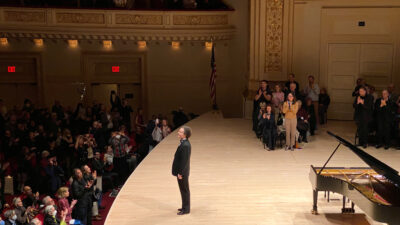
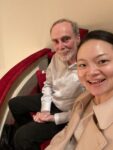
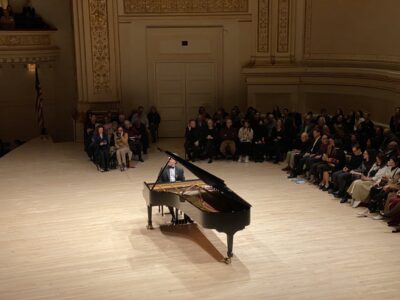
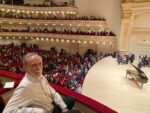
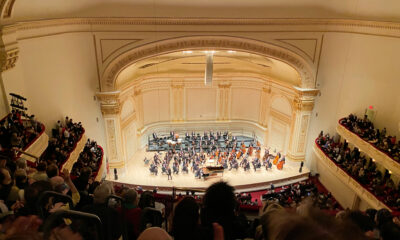
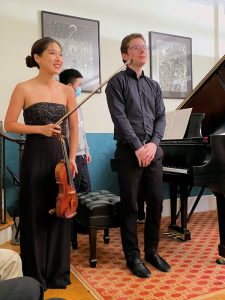
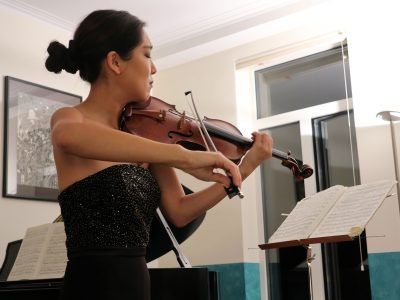
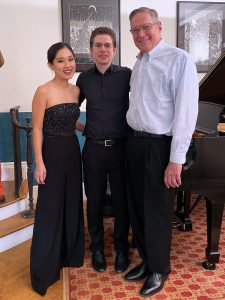
You must be logged in to post a comment.